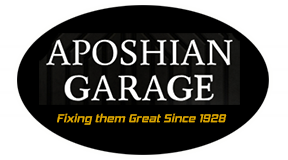Choosing the right motor oil for your vehicle is not just a routine maintenance task; it's a critical decision that has a direct and lasting impact on your engine's performance and lifespan. In the world of motor oils, two primary options stand out: synthetic and conventional motor oils.
Though these two options may appear similar on the surface, beneath the surface lies a world of differences. It's a bit like choosing the right tool for a specific job; the choice matters, and making the wrong one can lead to inefficiency and even damage.
The choice between synthetic and conventional motor oils is essential, so let's take a closer look at what makes them distinct and help you understand why this choice is so crucial. By the end, you'll be equipped with the knowledge needed to protect your engine's performance and ensure it enjoys a long and trouble-free life on the road.
Understanding Synthetic Motor Oil
Synthetic motor oil is the result of meticulous engineering and precise formulation. The manufacturing process creates a purer, more consistent product than conventional oil. This purity is essential because it reduces friction, which translates into enhanced lubrication and superior protection for your engine's critical components.
Synthetic oil consists of uniformly sized molecules designed for optimal lubrication. These molecules not only flow more freely but also resist breaking down under high temperatures, which helps maintain engine cleanliness and prolongs engine life.
Extreme Temperature Performance
One of the standout features of synthetic motor oil is its exceptional performance under extreme temperature conditions. Whether you're facing scorching summer heat or frigid winter cold, synthetic oil maintains its viscosity and provides reliable lubrication. This ensures your engine remains well-protected, even in the harshest climates.
Synthetic oil's ability to handle extreme temperatures stems from its resistance to thermal breakdown. This means it retains its viscosity and lubricating properties, preventing wear and tear on engine parts. In colder weather, synthetic oil flows more easily, reducing friction during cold starts and providing quicker protection.
Extended Oil Change Intervals
Synthetic oil's durability allows for significantly extended oil change intervals. While conventional oil typically necessitates changes every 3,000 to 5,000 miles, synthetic oil can often go 7,500 to 10,000 miles or more between changes. This not only saves you money over time but also means fewer trips to the mechanic for oil changes. For more insights on vehicle maintenance, read Subaru Maintenance Checklist for Long Road Trips.
Synthetic oil's longevity is due to its resistance to oxidation and the formation of sludge and deposits. It maintains its performance over extended periods, reducing the frequency of oil changes while still providing optimal engine protection.
Conventional Motor Oil
Conventional motor oil has been a trusted choice for decades due to its wide availability and budget-friendly nature. If you're working within a strict budget or prefer a traditional approach, conventional oil may align well with your needs. It's readily available at most auto parts stores and service centers.
While conventional oil may be less expensive than synthetic, it's essential to recognize that it typically requires more frequent oil changes. However, for many drivers, the lower upfront cost may offset the need for more frequent maintenance.
Well-Suited for Older Engines
For older vehicles with higher mileage or engines that have some wear and tear, conventional oil can be a suitable option. Its thicker viscosity can provide enhanced lubrication for older engine components. However, remember that you may need to stick to more frequent oil change intervals to maintain engine health.
Conventional oil is known for its straightforward and robust lubricating properties. It's a reliable choice for vehicles with well-seasoned engines, where the slightly thicker consistency may provide added protection to aging components.
Choosing the Right Viscosity
When selecting conventional oil, it's crucial to choose the correct viscosity (thickness) for your engine. Refer to your vehicle's owner's manual for the manufacturer's recommended viscosity range. Using the right viscosity ensures optimal engine performance, protection, and fuel efficiency.
The choice of viscosity largely depends on your vehicle's make, model, and typical operating conditions. Conventional oils are available in various viscosity grades to accommodate different engine requirements. Consult your owner's manual or an experienced mechanic to determine the ideal viscosity for your specific vehicle.
What's Best for Your Vehicle?
Consider Your Vehicle and Driving Conditions
The choice between synthetic and conventional motor oil hinges on several factors. Begin by considering the age of your vehicle, your typical driving conditions, and the manufacturer's recommendations. Newer vehicles often benefit from the enhanced performance and protection provided by synthetic oil, while older ones may fare well with conventional.
Modern engines, especially those with advanced technology and turbochargers, often benefit significantly from synthetic oil. It provides better protection under high-stress conditions, ensuring longevity and reliability. If you have a newer vehicle and want to maximize its performance and efficiency, synthetic oil is a compelling choice.
Balancing Cost and Performance
Budget considerations are a significant factor in this decision. While synthetic oil offers superior performance and extended change intervals, it does come at a higher price point than conventional oil. To strike the right balance between cost and performance, evaluate your budget and driving habits.
If you drive a high-mileage vehicle or have a limited budget, conventional oil can still provide adequate protection and performance. However, you'll need to adhere to shorter oil change intervals to maintain engine health and longevity. Consider factors such as your annual mileage and the overall cost of ownership when making your decision.
Consult with Your Mechanic
Your trusted auto mechanic is a valuable resource when selecting the ideal motor oil for your vehicle. They possess in-depth knowledge of your specific engine and can recommend the best oil type and change intervals to maximize engine life and efficiency. Don't hesitate to seek their professional guidance.
Auto mechanics, like the team at Aposhian Garage, have extensive experience working with various engine types and can provide insights based on your specific vehicle's needs. They can factor in variables like your typical driving conditions, engine age, and performance expectations to make an expert recommendation.
Engine Health Starts with the Right Oil
The decision to choose synthetic or conventional motor oil is pivotal in maintaining your engine's health and performance. Synthetic motor oil, with its exceptional purity and performance capabilities, is a remarkable choice for many modern vehicles. Conversely, conventional motor oil remains a reliable option, particularly for older engines and those on a tighter budget.
Ultimately, the decision should be grounded in your vehicle's specific requirements, your driving habits, and your budget. Consult your auto mechanic for personalized guidance. Regular oil changes are the cornerstone of engine maintenance, and whether you opt for synthetic or conventional oil, trust your mechanic to provide expert care, ensuring your engine runs smoothly and efficiently for miles to come.
By selecting the right motor oil and adhering to recommended change intervals, you can maximize your engine's lifespan, optimize its performance, and enjoy worry-free driving for years to come. Make the right choice for your vehicle and embark on a journey of engine reliability and longevity.
Ready to Make the Right Choice for Your Engine? Contact Aposhian Garage Today!
At Aposhian Garage, we're committed to ensuring your engine receives the care it deserves. Whether you choose synthetic or conventional oil, we provide expert oil change services tailored to your vehicle's needs. Contact us today, and let's keep your engine running smoothly and efficiently, mile after mile. Your engine's health starts with the right oil and the right care
When using Aposhian Garage, you have not only had your Subaru properly maintained, but you have also found your Subaru repair “home.”
We look forward to getting to know you and your vehicle!



